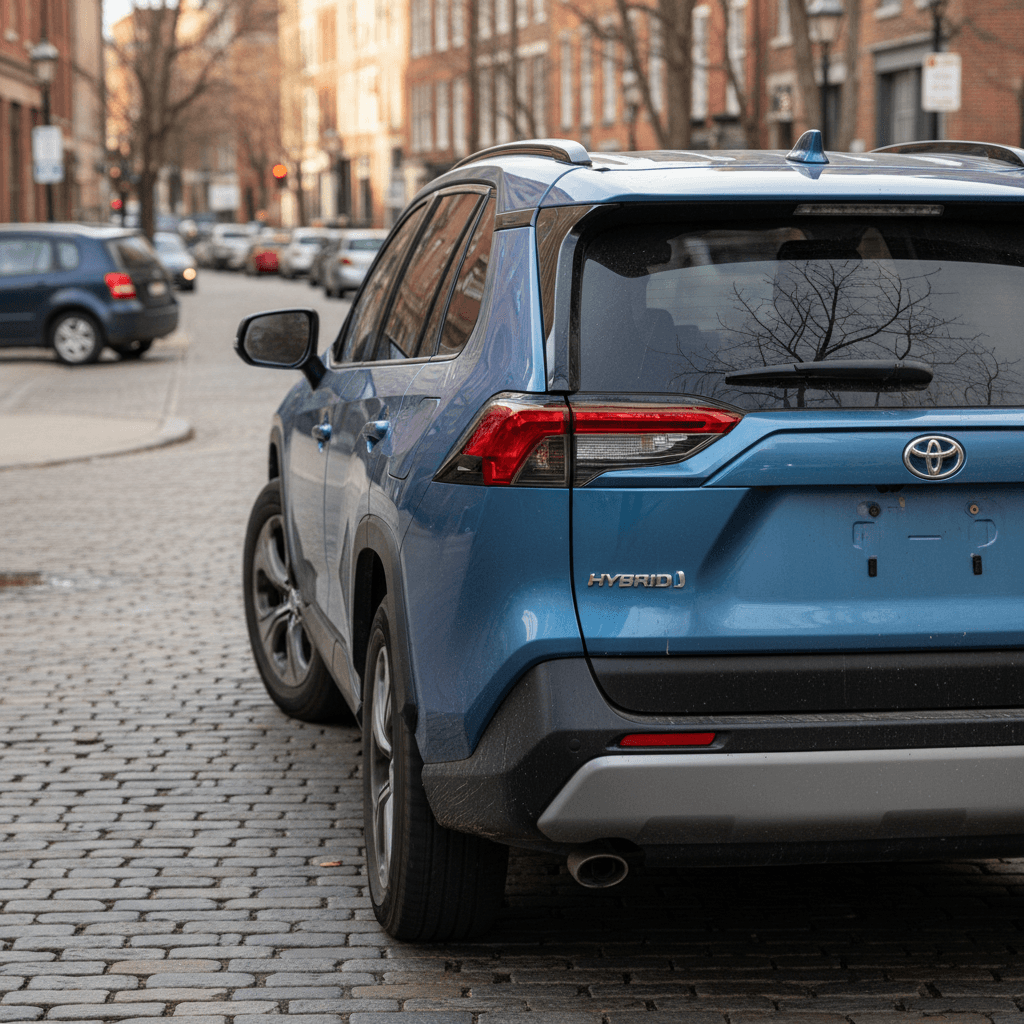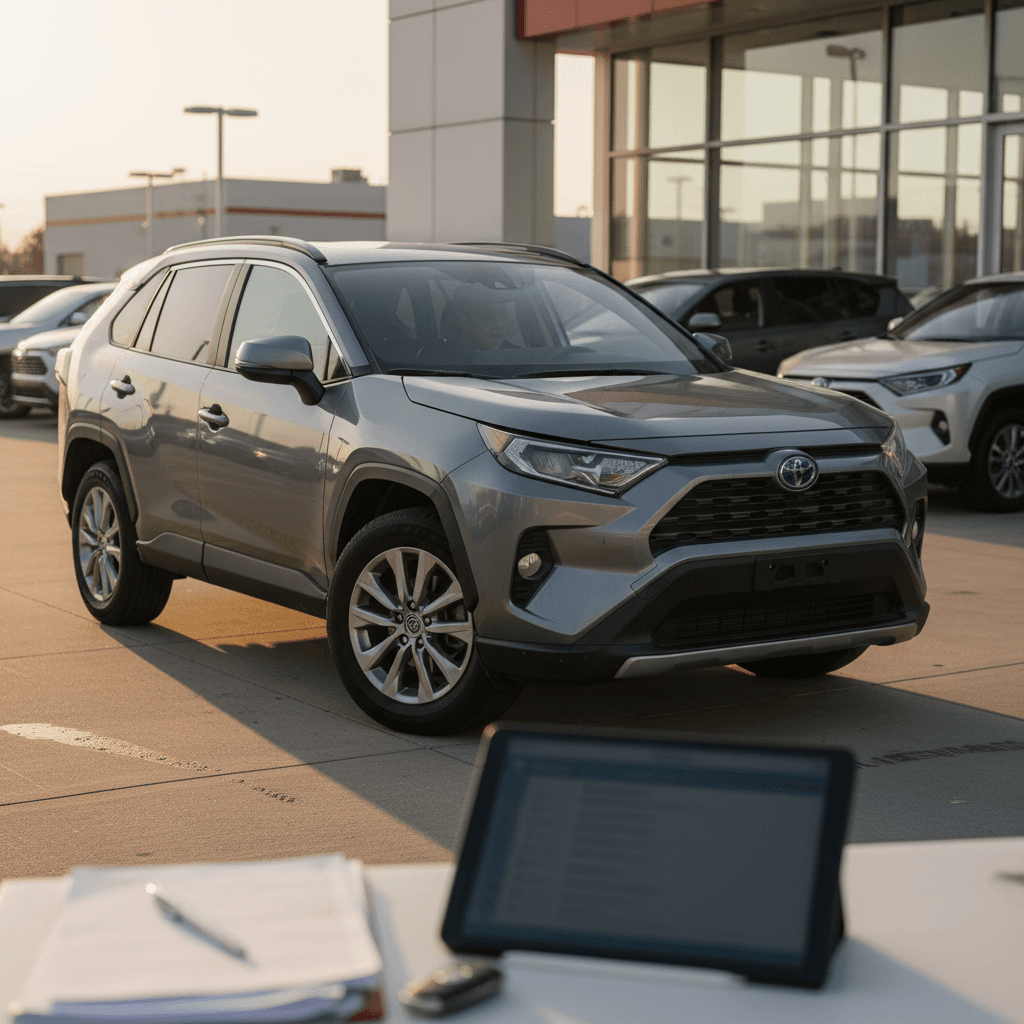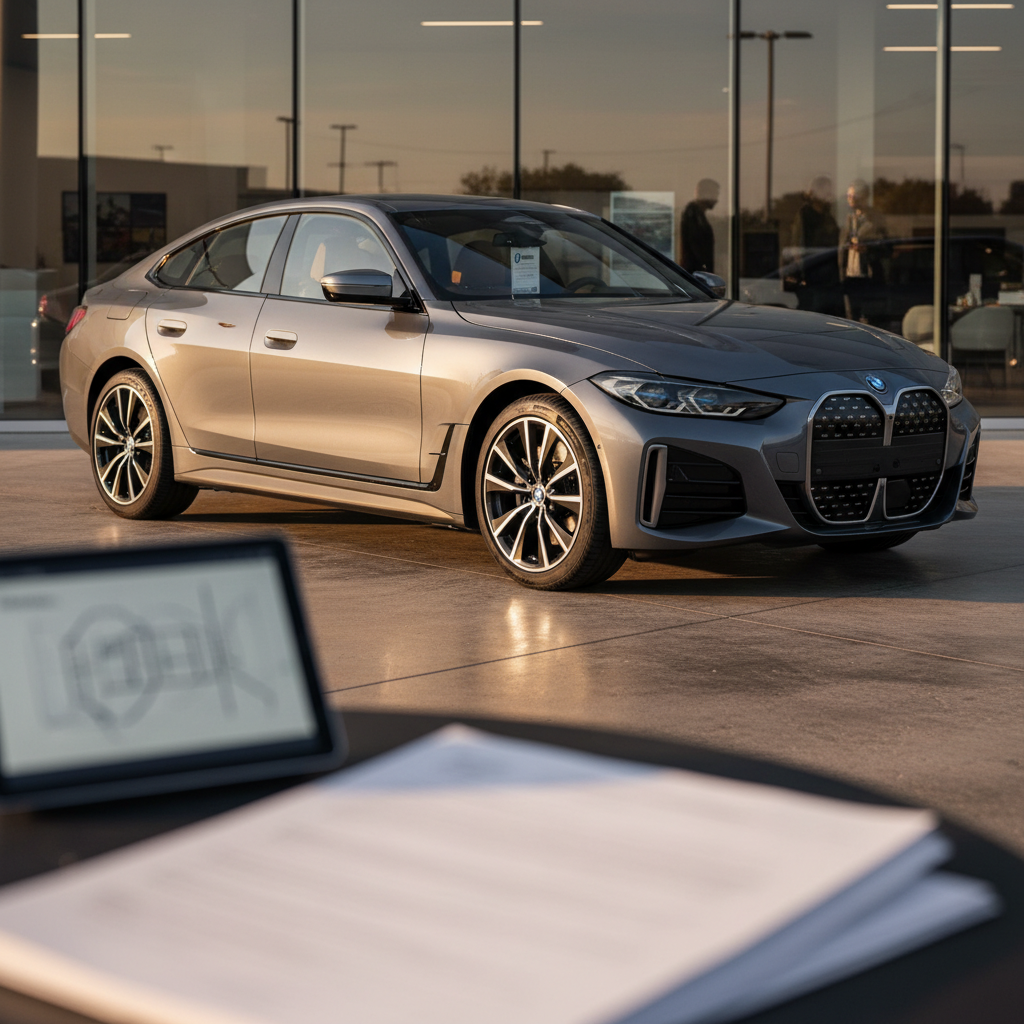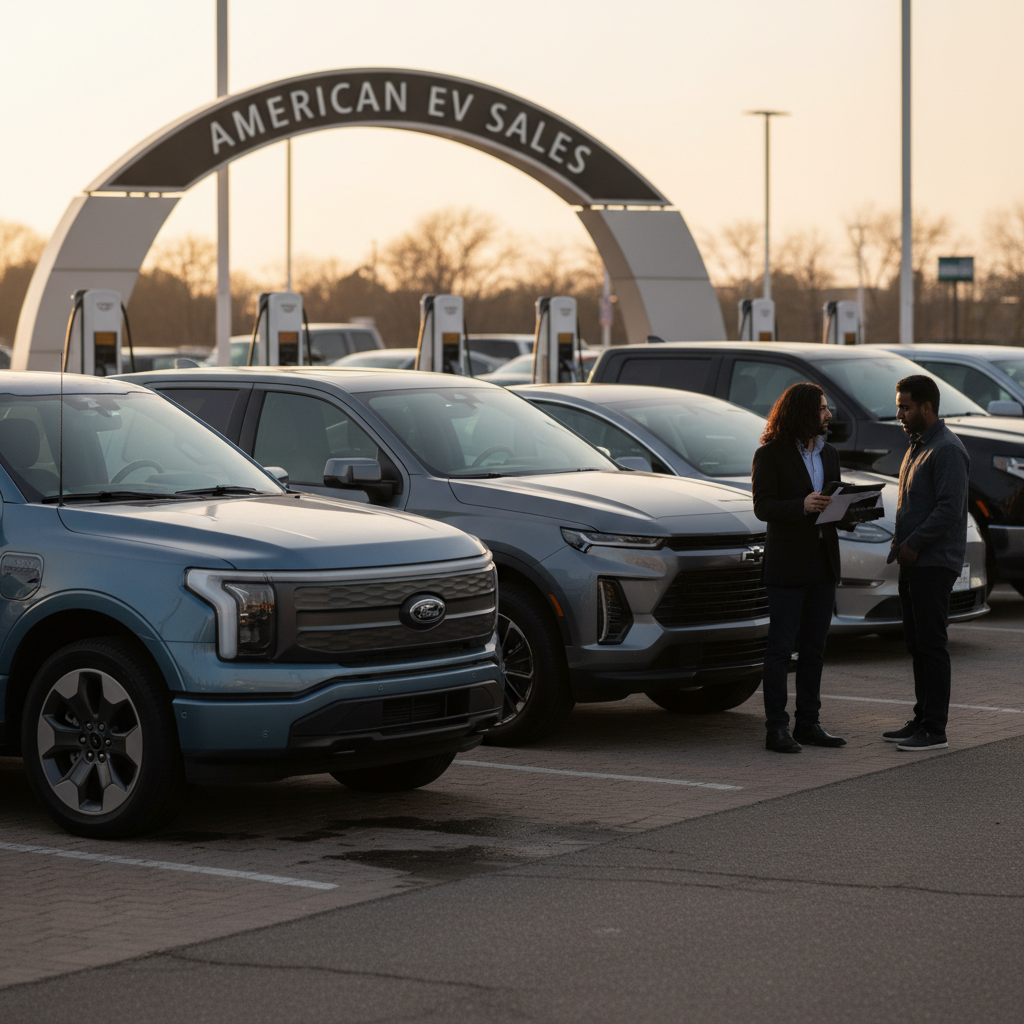If you’re hunting for a second hand Toyota SUV for sale, you’re not alone. Toyota’s mix of reliability, resale value, and increasingly efficient hybrid and electric powertrains makes their SUVs some of the most sought‑after used vehicles in the U.S. The flip side of that desirability is simple: it’s easy to overpay, or to buy the wrong configuration for how you actually drive.
What this guide covers
Why second hand Toyota SUVs are so popular
- Reliability track record: Toyota consistently sits near the top of reliability rankings, and its hybrid powertrains are among the most proven on the road.
- Resale value: Models like the RAV4 and RAV4 Hybrid hold value extremely well, which makes them more expensive used, but also protects you when you eventually sell or trade in.
- Fuel efficiency: Toyota’s hybrid SUVs can deliver 35–40 mpg in real‑world driving, easing the pain at the pump compared with traditional SUVs.
- Variety of sizes: From compact RAV4 to three‑row Highlander and rugged 4Runner, there’s a Toyota SUV for commuters, families, and off‑roaders.
- Growing EV options: With the bZ4X (now evolving into the “bZ” line), Toyota finally offers a fully electric SUV that will increasingly show up on the second‑hand market.
Quick positioning tip
Best used Toyota SUV models to target
Core Toyota SUV choices on the used market
Match the SUV to how, and where, you really drive
RAV4 & RAV4 Hybrid
Best for: Most shoppers. Compact, efficient, easy to park.
- Plenty of space for a small family.
- Hybrid versions deliver excellent fuel economy.
- Strong resale value keeps long‑term costs predictable.
Highlander & Highlander Hybrid
Best for: Families needing 3 rows.
- Seats up to eight (depending on configuration).
- Hybrid offers better MPG than most three‑row rivals.
- Good blend of comfort and reliability for road trips.
4Runner
Best for: Off‑road and towing.
- Body‑on‑frame construction and serious 4x4 hardware.
- Not fuel efficient, but extremely durable.
- Holds value incredibly well, even at high mileage.
Electrified Toyota SUVs
Hybrids and EVs worth targeting used
RAV4 Hybrid / Prime
RAV4 Hybrid: The efficiency sweet spot for most buyers.
RAV4 Prime (plug‑in): Limited availability used, but offers stout performance and electric‑only commuting for many drivers.
bZ4X ("bZ")
Toyota’s compact electric SUV. Early models had modest range and charging speeds, but they’re increasingly attractive on the used market thanks to falling EV prices and evolving battery warranties.
Watch out for "cool but wrong" SUVs
How much should you pay for a second hand Toyota SUV?
Exact pricing depends on trim, mileage, condition, and region, but it helps to benchmark against new‑car MSRPs and real‑world transaction prices, then work backwards. In 2025, a new RAV4 Hybrid typically stickers in the low‑to‑mid $30,000s for volume trims and around $40,000 for a fully loaded Limited. That anchors where used values tend to land after a few years on the road.
Typical 2025 used price bands for popular Toyota SUVs (U.S.)
These are broad, national‑average style ranges for clean‑title vehicles from dealers or well‑documented private sellers.
| Model & powertrain | Age / mileage sweet spot | Ballpark used asking prices* | Notes |
|---|---|---|---|
| RAV4 (gas) | 4–7 years / 60k–110k miles | $17,000–$26,000 | Older high‑mileage examples can dip lower; low‑mile newer models can overlap with hybrid pricing. |
| RAV4 Hybrid | 3–6 years / 40k–100k miles | $21,000–$32,000 | High demand keeps prices firm; expect to pay more than gas RAV4 for similar age/mileage. |
| Highlander (gas) | 4–8 years / 70k–130k miles | $20,000–$33,000 | Three rows and Toyota reliability keep values strong. |
| Highlander Hybrid | 3–7 years / 60k–120k miles | $25,000–$38,000 | Fewer on the market; hybrids often command a significant premium. |
| 4Runner | 6–12 years / 90k–200k miles | $22,000–$40,000+ | One of the slowest‑depreciating SUVs; late‑model TRD trims can be shockingly expensive used. |
| bZ4X (EV) | 2–4 years / 15k–60k miles | $24,000–$34,000 | EV price softness means better deals; check battery health carefully. |
Always adjust for local market conditions, accident history, options, and maintenance records.
Why are used Toyota SUVs still expensive?
What depreciation looks like on a Toyota SUV
Used Toyota SUV reliability and longevity
The reputation that keeps values high isn’t hype. Decades of data show Toyota SUVs regularly sailing past 200,000 miles with routine maintenance. Their hybrids, in particular, use an eCVT design that has been in service for over 20 years and has proven extremely robust compared to some competitors’ multi‑speed automatics and dual‑clutch transmissions.
- RAV4 / RAV4 Hybrid: Many owners report 200k+ miles with original engine and hybrid components when maintenance is kept up. Some 2019–2021 models had nuisance issues like fuel‑tank fill problems, water intrusion around roof rails, or power liftgate failures, largely addressed in later years.
- Highlander / Highlander Hybrid: Solid long‑term reliability. Hybrids add complexity but Toyota’s hybrid system has one of the best track records in the industry.
- 4Runner: Old‑school, overbuilt, and thirsty. The drivetrain is simple by modern standards and can last decades if rust is kept at bay.
- bZ4X: As a newer EV, long‑term data is still accumulating. Early cars had a wheel‑bolt recall and modest fast‑charging speeds, but ongoing updates and generous battery warranties help de‑risk used purchases.
Don’t skip the inspection just because it’s a Toyota
Special focus: used Toyota RAV4 Hybrid

If you’re looking for a second hand Toyota SUV for sale that balances price, space, and fuel economy, it’s hard to ignore the RAV4 Hybrid. It builds on Toyota’s best‑selling SUV with electric assistance that improves both performance and efficiency, often delivering up to around 40 mpg combined depending on model year and trim.
RAV4 Hybrid advantages
- Excellent MPG: Real‑world owners routinely see mid‑30s or better, even with all‑wheel drive.
- Stronger acceleration: The hybrid system provides punchier low‑speed response than the gas‑only RAV4.
- All‑weather confidence: Standard AWD on most Hybrid trims, with good ground clearance for snow and light trails.
- Resale strength: Slower depreciation than many hybrid rivals, which protects your equity.
RAV4 Hybrid watch‑outs
- Price premium: You’ll typically pay a few thousand more than a comparable gas RAV4.
- 2019–2021 quirks: Pay attention to fuel‑fill behavior, power liftgate function, and any history of water leaks around roof rails or doors.
- Battery age: The hybrid battery is generally durable, but an independent scan for state of health is still smart on older/high‑mile examples.
Target model years
Going electric: buying a used Toyota bZ4X (bZ)

Toyota was late to full battery‑electric SUVs, but the bZ4X has now been on the road long enough to appear regularly in used listings. Because early EVs often depreciate faster than Toyota’s hybrids, a used bZ4X can sometimes be priced near a comparably equipped RAV4 Hybrid, even though its new‑car price was higher.
- Range and charging: Depending on year, trim, and drivetrain, you’re typically looking at roughly 220–250 miles of EPA range. DC fast‑charging speeds are modest by 2025 standards, so this is best for home charging and occasional road trips rather than constant long‑distance driving.
- Battery warranty: Toyota’s battery coverage is a major safety net. Still, get a verified battery health report rather than relying solely on the odometer.
- NACS and future‑proofing: Newer versions are adopting the Tesla‑style NACS plug and improved battery tech. That can make slightly newer used examples more attractive, as they’ll have access to a larger fast‑charging ecosystem over time.
- Price dynamics: EV prices have softened, so don’t be afraid to negotiate. Sellers who anchored on 2022–2023 values may still be adjusting to today’s market.
EV‑specific due diligence
Inspection checklist for any second hand Toyota SUV
Pre‑purchase checklist
1. Pull the full history report
Get a CARFAX or AutoCheck report and read it closely. Look for accident history, airbag deployments, repeated repairs, title issues, and whether the car lived in rust‑prone regions.
2. Confirm recalls and service campaigns
Use the VIN on Toyota’s website to verify that recall work, especially on early RAV4 Hybrid and bZ4X models, has been completed. Ask for documentation.
3. Get a professional inspection
Even on a Toyota, pay for an independent pre‑purchase inspection. Hybrids and EVs should be scanned with factory‑level tools to check for stored trouble codes and hybrid/EV system health.
4. Inspect body, underbody, and interior
Look for poor panel gaps, overspray, or mismatched paint that could indicate prior damage. Check the underbody for rust and fluid leaks, and the interior for water staining or mold odors.
5. Test drive in mixed conditions
Drive on city streets and highways. Listen for rattles or clunks over bumps, evaluate braking feel, and confirm the transmission or eCVT operates smoothly. Test all driver‑assist features and the infotainment system.
6. For hybrids and EVs: verify battery health
For hybrids, ask for a health report on the traction battery; for EVs, request a formal battery‑health diagnostic such as a <strong>Recharged Score</strong> or equivalent that quantifies remaining capacity.
Certified Pre‑Owned vs independent dealers
Financing and trade‑in strategies that actually save you money
Structure the deal around total cost
- Ignore monthly payment games: Focus on the out‑the‑door price first, then decide how much you want to finance.
- Check used‑EV incentives: In some cases, used EVs like the bZ4X can qualify for federal or state incentives when purchased from dealers. That effectively reduces your price.
- Compare APR offers: Pre‑qualify with your bank or credit union and compare against dealer or online financing offers so you’re not negotiating blind.
Make the most of your trade‑in
- Get multiple valuations: Collect instant‑offer quotes and trade‑in estimates before you visit a dealer. That gives you a realistic baseline.
- Separate the negotiations: Negotiate your trade‑in value and SUV purchase price as independent numbers.
- Consider consignment: If you’re not in a rush, consignment or marketplace‑style selling can net more than a traditional trade‑in, especially for well‑equipped SUVs and EVs.
How Recharged fits into this
How Recharged helps when your Toyota SUV is electric
If the second hand Toyota SUV for sale you’re eyeing is a bZ4X or another electric model, you’re making a more technical purchase than a standard gas Highlander. Battery health, charging behavior, and software history matter as much as mileage or tire tread. That’s where Recharged is designed to help.
What you get when you buy a used EV SUV through Recharged
Designed for clarity around battery health and long‑term costs
Recharged Score Report
EV‑specialist support
Digital purchase & delivery
FAQs: second hand Toyota SUV for sale
Frequently asked questions
When you’re scanning listings for a second hand Toyota SUV for sale, the brand’s reputation and strong resale values are already working in your favor. Your job is to choose the right model for your needs, avoid the few known trouble spots, and base your decision on data, not just a shiny set of wheels on the lot. Whether that means a high‑efficiency RAV4 Hybrid, a road‑trip‑ready Highlander, a trail‑proven 4Runner, or an electric bZ4X, a bit of disciplined shopping and a proper inspection will go a long way toward making sure your next Toyota SUV feels like a smart move years down the road.



